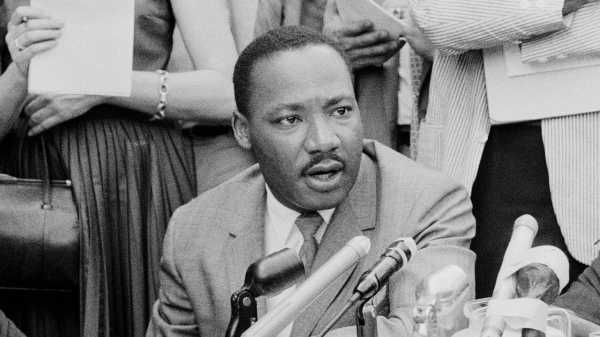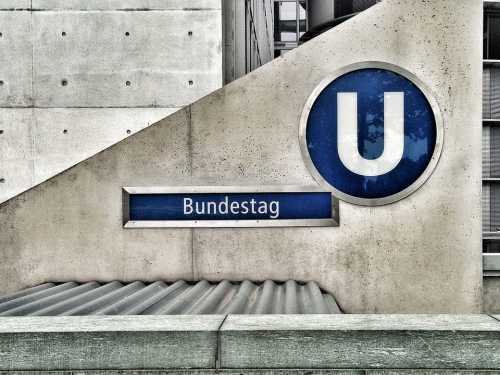
Save this storySave this storySave this storySave this story
The last time Martin phoned me, on the day of his assassination, the call came into my office in New York. I knew him so well that I figured I could anticipate the purpose for his call. He was in Memphis with Andrew Young and the Reverend Billy Kyles, going over the details of his schedule. I expected that he wanted to make sure he knew exactly when I’d be arriving in town to assist him. It was a matter of logistics—clerical stuff, really—and I was buried in other work. I shouted to my secretary, “Tell him I’ll be there on time.”
“You don’t want to speak with Dr. King?” she asked.
Not really; I’d had this conversation many times before. “Just let him know I need someone to pick me up at the airport. I’ll be there on time.”
And thus, I missed my chance at goodbye.
Later, a verse from the Book of Matthew would repeat itself in my mind: “The King will reply, ‘Truly I tell you, whatever you did for one of the least of these brothers and sisters of mine, you did for me.’ ”
Martin did the most for the least. And everything we did for him was the least we could do. The day after the assassination of President John F. Kennedy, I had met Martin at LaGuardia Airport. He had stepped out of the jetway, shaking his head. “See, if they can kill the President of the United States, Clarence, then you and all the others might as well stop worrying about the fantasy that I can be protected,” he had said.
We didn’t ever stop worrying, but he was right.
February, 1968, was rough for the city of Memphis, Tennessee. On the first of the month, two members of the mostly Black Local 1733 of the American Federation of State, County & Municipal Employees were crushed to death in the faulty trash compactor of their own garbage truck. Two weeks later, the union members staged a work stoppage, protesting the city’s lack of urgency in dealing with outdated equipment and dangerous working conditions. Before long, by the city’s count, nine hundred and thirty of a thousand and one hundred sanitation workers and two hundred and fourteen of two hundred and thirty sewage and drainage workers refused to show up for work. Garbage piled up in the streets, and the mayor, the stubborn former head of the Department of Public Works (a role in which he had overseen sanitation workers), was not interested in negotiation. He brought in white strikebreakers, and the animus intensified.
Dr. King wanted to go to Memphis in support of Local 1733. I opposed the idea—not on principle but because I had already scheduled several meetings that month in Manhattan to broker introductions with generous donors, introductions that Martin had repeatedly asked me to arrange. Moreover, the relationship between the striking African American garbage workers and the city of Memphis had become increasingly bitter.
Roy Wilkins, the executive director of the N.A.A.C.P.; Bayard Rustin; and Billy Kyles convinced Martin that his presence in Memphis would be invaluable to the cause. So he went. On March 18th, he marched with the sanitation workers, and he planned to march with them again four days later, but the union postponed its second demonstration because of an unseasonable snowstorm. On the 28th, the workers resumed their march. This time, riots erupted. Amid the tumult, a police officer shot and killed Larry Payne, an unarmed sixteen-year-old boy. In the wake of that horror, the mayor called in the National Guard.
Martin showed no signs of leaving Memphis anytime soon, but I needed to prep him for the meetings, so I planned a trip to Memphis myself. My flight was scheduled to land in the evening of April 4, 1968. I was packing for the trip when my home phone rang. I was running late, and though my first impulse was to ignore the call, I answered.
Harry Belafonte was on the line. “I can’t talk now,” I told him. “I’m jumping in a cab for the airport.”
“Turn on the TV,” Harry said, “Martin’s been shot.” He hung up the phone.
I turned on the television that I kept in the bedroom. Walter Cronkite was reporting breaking news that echoed Harry’s words. “Dr. Martin Luther King, Jr., has been shot,” Cronkite said.
I was stunned. I picked up the phone again and started calling my contacts in Memphis. One after another, every line was busy. A cold resignation swept through me. They finally got him.
I managed to reach Harry by phone again. “Am I getting on the plane?” I asked. We discussed the possibility, and we agreed that I could do more from my home, coördinating with our colleagues in the Southern Christian Leadership Conference (S.C.L.C.), some of whom were in Memphis, but most of whom were still in Atlanta.
In the following hours, I was lost in the daze that often accompanies a sudden death. There was so much to be done. A practiced responsibility guided my movements, and my mind was occupied with plans and logistics, displacing grief. I tried to help from New York, making calls and introductions, responding to press inquiries. But it quickly became apparent that I needed to be down South, so Stanley Levison and I travelled to Atlanta to meet up with Harry.
The next few days were a tangle of duties and obligations.
There wasn’t a moment to waste on reflection. I held myself steady, assisting the family in planning the funeral, along with Harry and Stanley. Both men had long offered such stalwart support in Martin’s life and work—one, out front, the other, in the shadows—and here, at the end, they did everything they could to continue that legacy.
Together, the three of us tried to unburden Martin’s widow, Coretta, as much as possible. The Kings’ living room in Atlanta doubled as a command post. Planning the funeral was an enormous undertaking: there were questions about controlling the crowd, managing the media frenzy, selecting the pallbearers, deciding who might preside over the service itself. We were even worried about the safety of the funeral party and mourners—my friend Martin was a much more divisive figure during his lifetime than the man memorialized on library buildings and freeways today. In fact, the racist governor of Georgia refused to let Martin’s body lie in state, and he even kept the flag flying at full staff, until a federal mandate ordered him to lower it.
One day, Xernona Clayton, a Black female journalist and a member of the S.C.L.C., came to the house holding a bundle of clothes. She had gone to a store downtown, to pick out some outfits for Coretta so that she would have appropriate clothing to wear in the next few days and, of course, to Martin’s funeral. She had left the store with the bill unpaid, promising to return, she told us. Harry, Stanley, and we all took out our cards and handed them to Xernona, telling her to split the charges up among all three. “And if there’s any problem,” I told her, “Have the clerks call here for approval.”
Coretta liked the selection, and Xernona returned to the store to pay for them. We didn’t hear from anyone, and when Xernona returned, she gave us back our cards. The shopkeeper had refused payment, wanting to support the King family in their time of grief, Xernona said.
The day before the funeral, I received a call from William vanden Heuvel, a good friend of mine and a close friend to the Kennedy family. He told me that he was calling on behalf of Jacqueline Kennedy. The former First Lady would be attending the funeral, and she wanted to visit Coretta beforehand. Bill and I coördinated the details, and, on the eve of the funeral, I met Mrs. Kennedy at the door, escorting her into the private area off the dining room where Coretta had been spending most of her time.
“Coretta,” I said. “I have someone who wants to give her condolences.” The world’s second most famous widow turned to face the first. It was certainly no pleasure, but it was a surreal kind of honor to introduce two of America’s most prominent victims of political violence to each other.
In the days after the funeral, I returned to New York and tried to resume my work. With the planning behind me, I struggled to ignore a question that resurfaced in my mind again and again: Can you really live in a country that allowed something like this to happen?
I tried to reckon with the bitter heartbreak, but I fell short.
Soon, I began refusing some calls from the S.C.L.C. On other occasions, I called people there, and my messages went unreturned. As the weeks passed, I began to see my relationship with the movement differently: although I knew I had been inspired by Dr. King, I had never really understood—until circumstances forced me to understand—that I was really working only for the man. Dr. King had sculpted the S.C.L.C. mission, and I believed in that mission. But the nature of things became clear: the S.C.L.C. was an organization, not much better than most organizations, rife with ego, posturing, sabotage, blame, angst over employment and salary and status. In short, it was a group of people—well-intentioned as they might have been—who acted as people do when they are at work. Some organizations succeed at the nuts-and-bolts level, and others are meant to rise or fall with a “key man.” In the case of the S.C.L.C., Martin was the magic.
And, within the grander scope of the civil-rights movement, Martin had his enemies: those who were jealous of his influence, his presence on the national stage. And I was his man. Now persona non grata. Fine with me. I became so angry, I lost all interest in the S.C.L.C. version of the movement. There was nothing anybody could do. I was tired of giving and getting nowhere. I pulled away, retreating north, where I felt I really belonged, to a life that I decided would be more self-centered.
A return to form, I suppose.
I also believed that the American government had allowed Martin’s death to happen. His shift in focus—from demanding desegregation to demanding economic parity and an end to the unjust slaughter overseas—had led to his assassination. If worrying about Black folks, in 1963, made him the most dangerous Negro leader in the country, just imagine what the government thought of him by the time he was at Riverside Church, criticizing the President of the United States over the war in Vietnam.
Throughout the summer of 1968, I strongly considered becoming a militant. I could imagine taking up arms against the government. If you could do this to Martin King, who stood for nothing but peace and dignity, if you could bring your copper-jacketed tools of destruction and oppression to bear on such a man, maybe I’ll do the same thing to you. Why not join the Black Panthers? Why not learn to make a bomb? Why not arm myself to the teeth and burn the whole motherfucker down?
In 2015, I met with James Comey, then the director of the F.B.I., for an hour in his office in Washington, D.C. We spoke about many things, including the assassination. He showed me what was beneath the glass on his desk: a photocopy of a memorandum from the former F.B.I. director J. Edgar Hoover, requesting authorization from Attorney General Robert F. Kennedy to wiretap Dr. King, and Kennedy’s authorization to do so. Comey kept a copy in plain sight, he said, so that, when his agents visited him in the office, they could be reminded of what the F.B.I. should not do.
I thought of Martin’s funeral. The procession stretched three miles long; the casket was placed on the back of a farm wagon pulled by mules. The eulogy was Martin’s own voice, prerecorded, delivering a sermon on how he should be remembered—asking that no one mention awards and honors but only the simple good he tried to do.
Mahalia Jackson, always Martin’s favorite, sang “Precious Lord, Take My Hand.” Later, there was a chorus of “We Shall Overcome.”
I didn’t think we would. Not this time.
There is a color picture from the funeral that I come across occasionally: Harry Belafonte, eyes rimmed red, right next to Coretta at Martin’s funeral. Fifty-five years have passed since that day; Martin’s been dead much longer than he was ever alive, and Harry died in April, never taking enough credit for the work that he did for the cause. And then here I am, nearing the age of ninety-three: the only one of the three left standing.
In time, I’ve come to terms with the assassination, but I’ve never come to peace with it. For years, my grief made me selfish and self-destructive. Long gone are the days when I considered domestic terrorism, but the pain still runs as deep now as it did then. After some time, I realized that to turn my back on the struggle would be to turn my back on Dr. King.
I never worked with the S.C.L.C. again, but I did get involved in politics, becoming a New York State delegate at the 1968 Democratic Convention. In the early seventies, I invested in one of America’s oldest and most influential Black papers, the New York Amsterdam News, and I tried to protect prisoner rights as a negotiator during the Attica uprising. I did my best to elevate Black culture, working to restore Harlem’s Apollo Theatre and build a network of Black radio stations.
And I’ve continued to bear witness to Martin’s life and character. There’s an African saying that I often reflect upon when I think about his legacy and my own part in his movement: if the surviving lions don’t tell their stories, the hunters will take all the credit. ♦
This is drawn from “Last of the Lions.”
Sourse: newyorker.com






